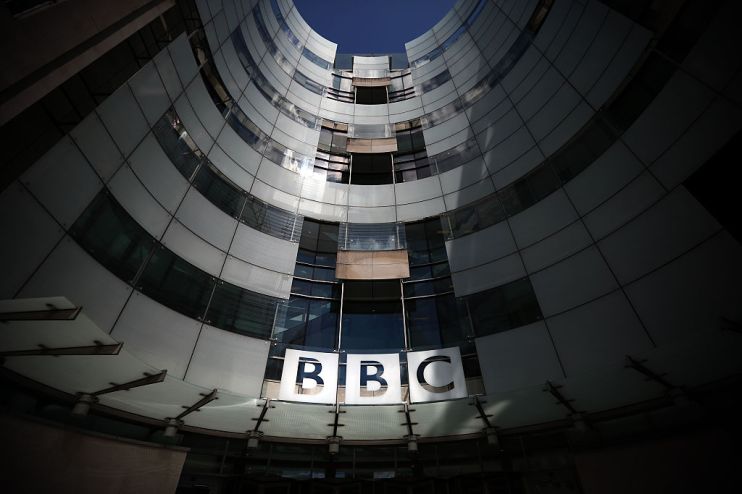BBC to make 520 job cuts in news department

The BBC has said it will axe 520 jobs in its news department as a result of the coronavirus crisis, marking 70 more redundancies than the broadcaster had originally planned.
The BBC said in January that it intended to axe 450 jobs within its news department, but plans were put on hold due to the pandemic.
The redundancies are separate to the 450 job cuts in the BBC’s regional news units announced last week. The redundancies announced today represent around nine per cent of BBC News’ 6,000-strong workforce, and brings the total number of job cuts made by the BBC in the last few weeks to 970.
The job cuts are expected to hit the BBC’s London headquarters and will include senior management posts. BBC News will have fewer reporters, and correspondents will be asked to work across an increased range of content.
The broadcaster added that “the reduction in output means we will also reduce our pool of presenters”.
The Andrew Neil Show will be part of the BBC’s cancellations, the broadcaster announced today. The political discussion programme had already been off the air during the Covid-19 crisis and will not return.
The BBC said a number of its digital journalists will move into its newsgathering team, as part of plans to break more stories in the morning when the broadcaster’s digital audiences are highest.
The public service broadcaster said Politics Live will reduce its output to just four days a week from Monday to Thursday. The BBC will stop commissioning bespoke political programmes for its BBC Parliament show, and will instead “draw on our archive to broadcast our popular historical election coverage”.
The BBC will shutter its In Business programme on Radio 4, and will instead integrate business coverage into its Bottom Line radio show.
It will also reduce studio space and make significant reductions to its operations staff.
The cuts are part of a shake-up to the BBC’s news output, as the broadcaster attempts to modernise its service for younger audiences as part of a “significant reinvention”.
Fran Unsworth, director of BBC News and Current Affairs, said: “Covid-19 has changed all of our lives. We are still covering the most challenging story of our lifetimes. During this crisis audiences have turned to BBC News in their millions and I’m incredibly proud of what we, as a team, have been able to achieve.
“But if we don’t make changes, we won’t be sustainable. This crisis has led us to re-evaluate exactly how we operate as an organisation.”
She added: “Our operation has been underpinned by the principles we set out earlier this year – fewer stories, more targeted and with more impact. We’re aiming to reach everyone, every day. For BBC News to thrive, and for us to continue to serve all our audiences, we have to change.”
The pandemic has battered the public service broadcaster’s finances, with the national lockdown and social distancing measures ripping up its summer filming schedule.
The publicly-funded broadcaster had already planned to save £800m before the coronavirus struck, but the pandemic has added a further £125m to the BBC’s savings list due to a slump in revenue. The broadcaster must save £25m of this by 2022.
Senior executives last month said the BBC will be forced to bring back some “old classics” such as Eastenders over the summer and output will be “thinner” over the next year as filming plans remain on hold.
It comes after the BBC earlier this month announced it will slash 450 jobs from its BBC England team and will axe its long-running Inside Out show as part of plans to shore up an extra £25m over the next two years.
The BBC will stop producing its long-running current affairs programme Inside Out, which covers 11 different regions across the UK. The show will be replaced by a new weekly regional investigative programme set to launch on BBC One.
The broadcaster last week confirmed plans to axe free TV license fees for over-75s, after a two month delay due to the coronavirus pandemic. More than 3m households will be asked to start paying the £157.50 annual fee from 1 August, after the BBC said the delayed decision was costing it £35m a month.
Clare Sumner, the BBC’s director of policy, told a Department for Digital, Culture, Media & Sport (DCMS) committee last month that it was a “tough period” for the broadcaster, made worse by unforeseen cancellations to its filming schedule during the pandemic.
Before the Open: Get the jump on the markets with our early morning newsletter